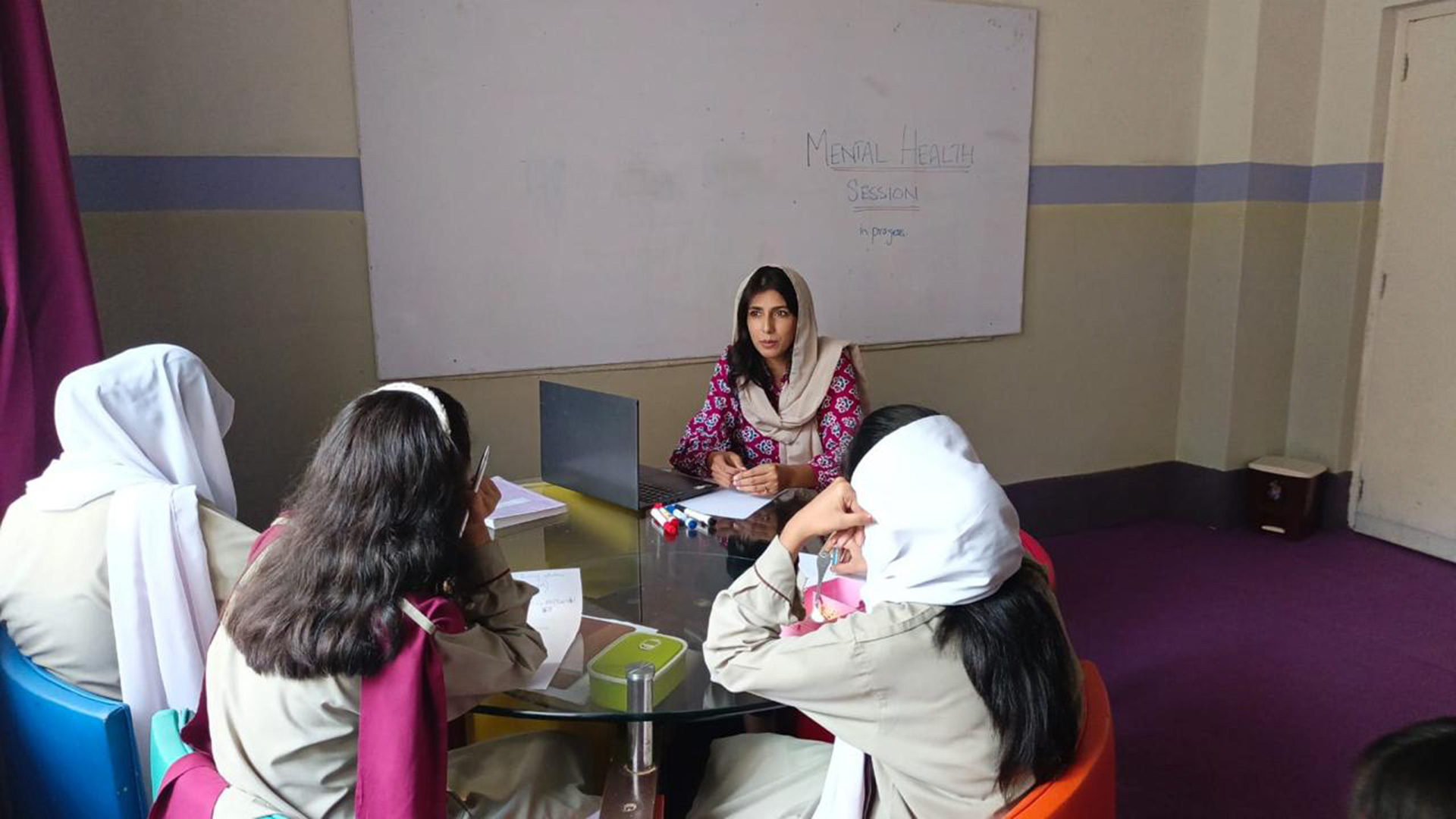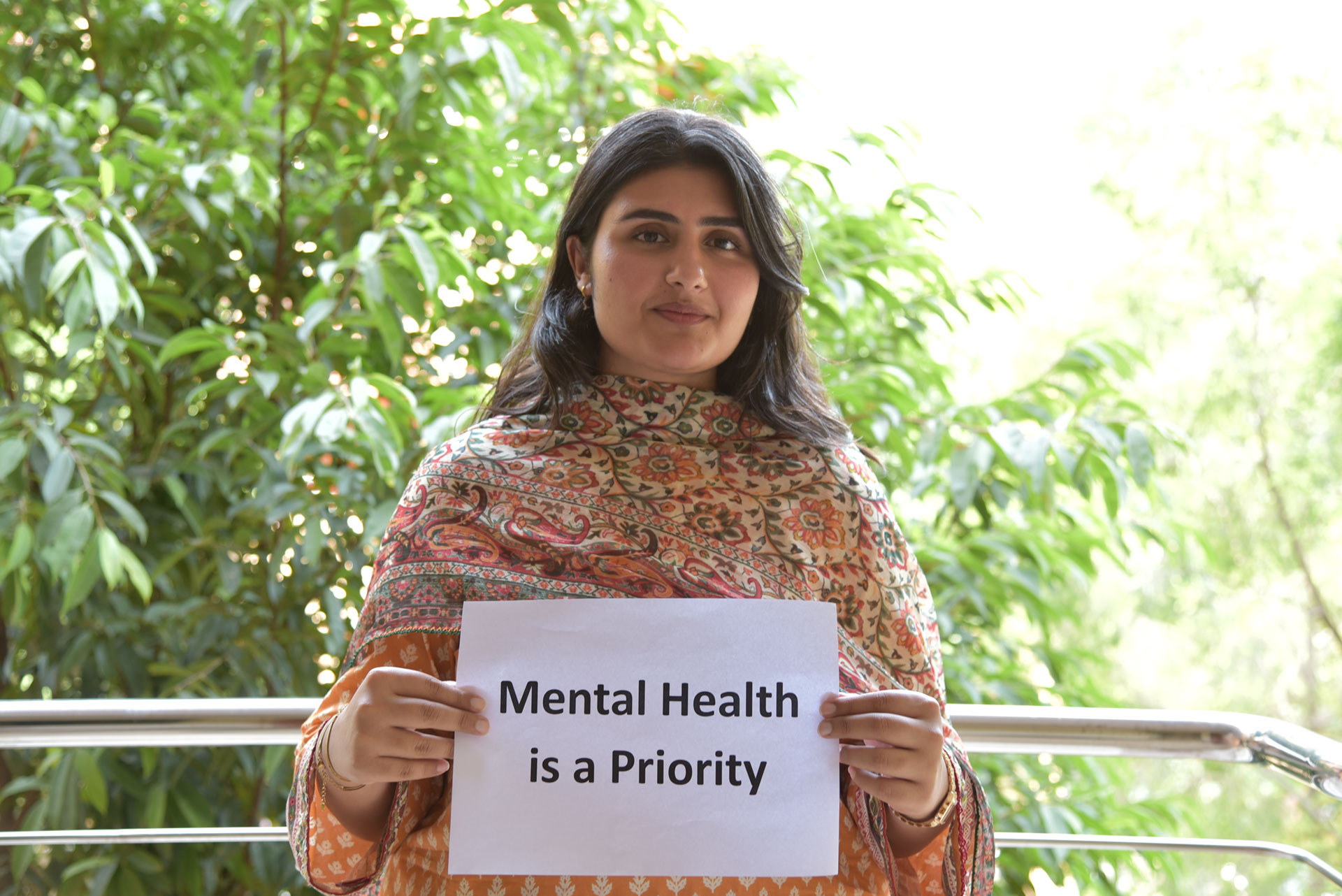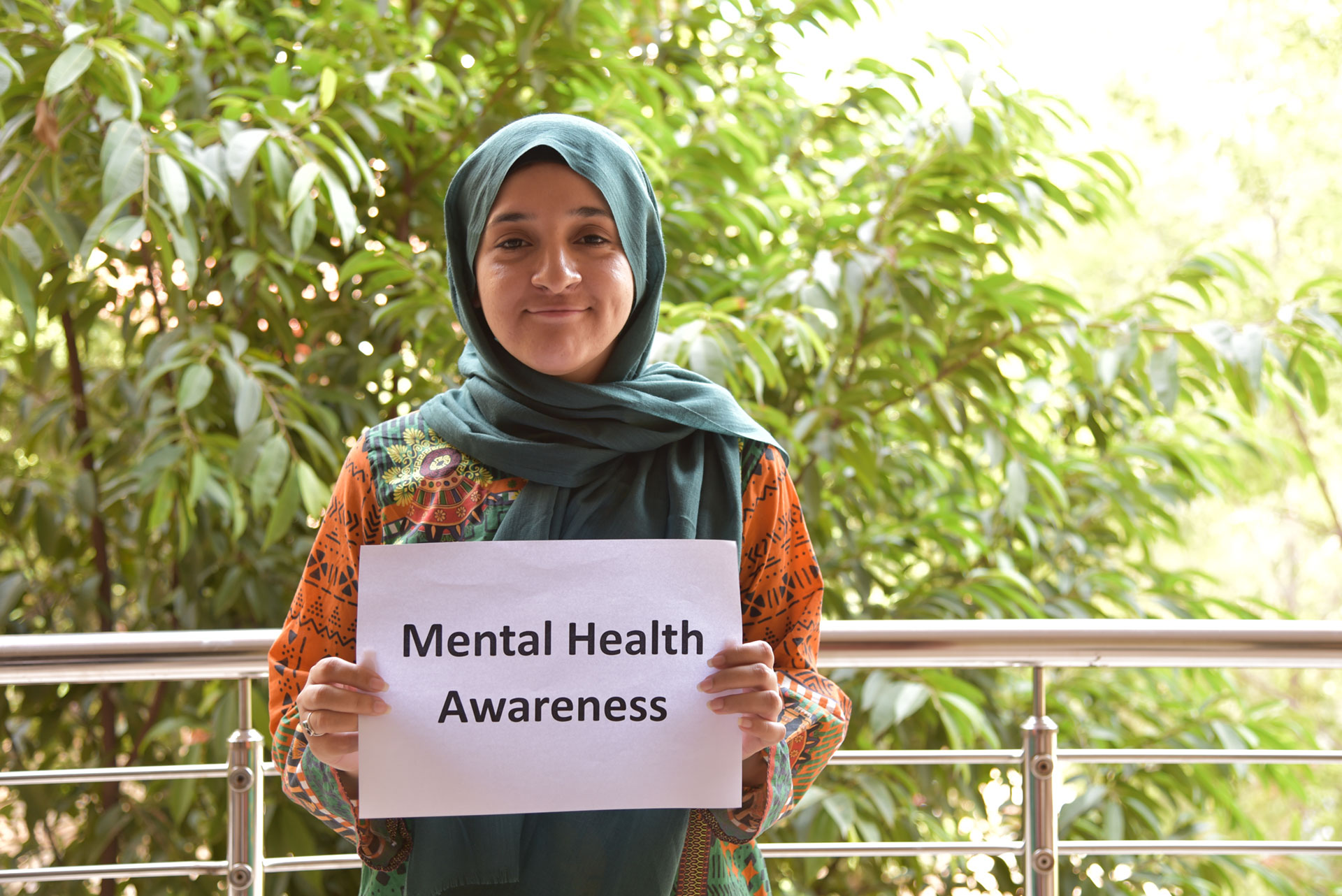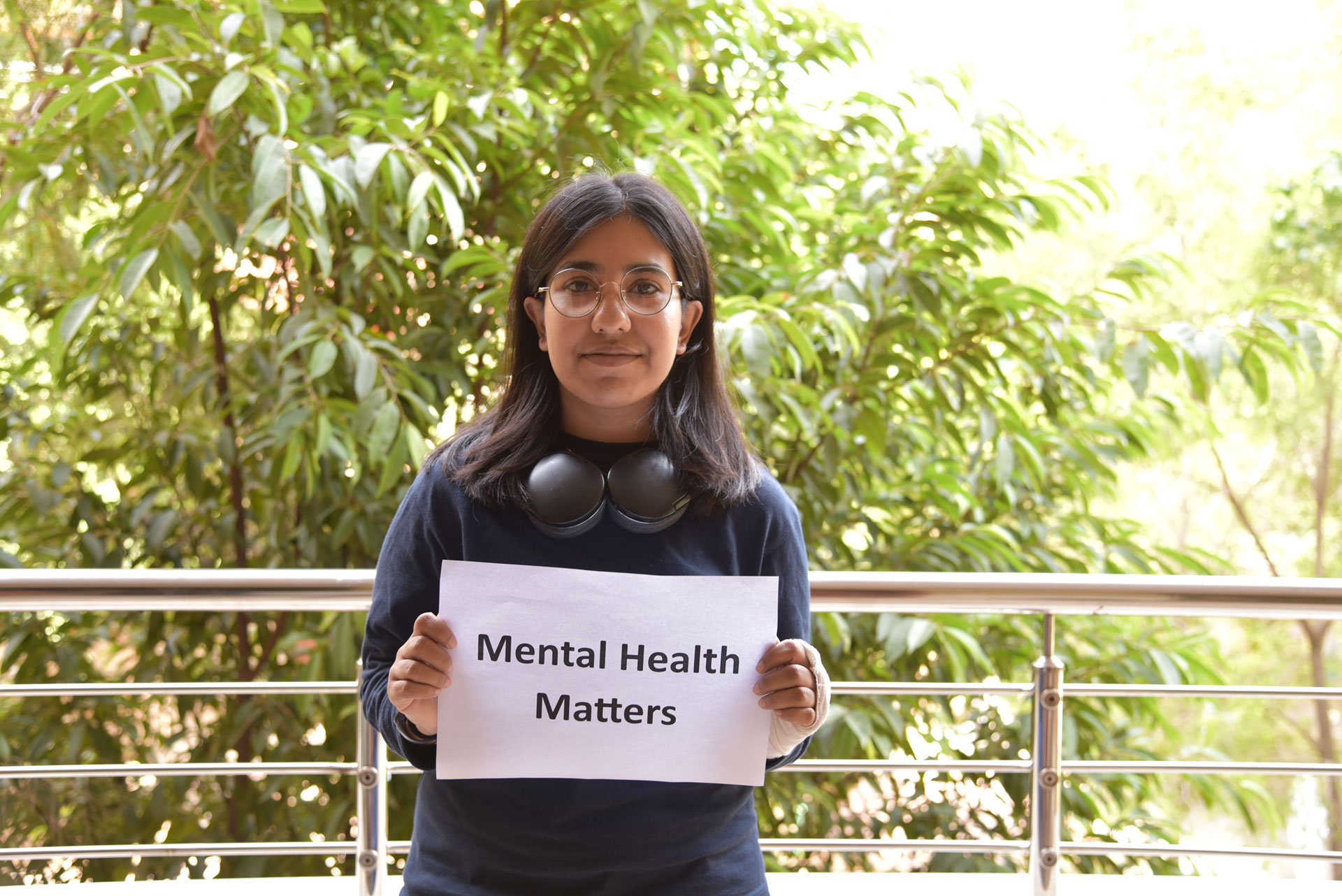 Annum Tanveer, a clinical psychologist, conducts a counselling session with students from a community school in Rawalpindi, Pakistan. Photo credit: WHO Pakistan
Annum Tanveer, a clinical psychologist, conducts a counselling session with students from a community school in Rawalpindi, Pakistan. Photo credit: WHO Pakistan
25 October 2025, Islamabad, Pakistan – “Awareness about mental health is important to address the stigmas around it,” said Sejal, a psychology student at the National University of Science and Technology (NUST) in Pakistan. She feels that people are still afraid to talk about mental health publicly and wants to do her part to address this challenge.
Sejal is among the Pakistani students who participated in awareness-raising sessions organized by the World Health Organization (WHO), in collaboration with educational institutions, to empower youth and health workers.
Globally, 1 in 7 people live with a mental health condition, and Pakistan is no exception. People affected by mental health issues need professional support. Needs multiply quickly, and often silently, when floods strike, when conflict displaces families and health systems are overstretched due to emergencies.
 Sejal, a psychology student at NUST University, supports mental health awareness efforts in Pakistan. Photo credit: Sara Akmal/WHO Pakistan
Sejal, a psychology student at NUST University, supports mental health awareness efforts in Pakistan. Photo credit: Sara Akmal/WHO Pakistan
Next to Sejal, Hijab Fatima, another Psychology student, nodded in agreement. "Nowadays, there are so many stressors," Hijab said. "Economic pressure, social expectations... not everyone knows how to deal with them. Mental health awareness is key to informing people about coping mechanisms, about healthy ways to manage stress, about knowing when and where to seek professional help."
In Pakistan, WHO and partners have supported the Ministry of National Health Services, Regulations and Coordination to integrate mental health services into universal health coverage. WHO is also partnering with the Ministry of Health to scale up services for mental, neurological and substance use disorders at the primary health care level through the Mental Health Gap Action Programme (mhGAP).
There is no health without mental health. Mental health problems deprive individuals of their potential, fracture families and can be an obstacle to the achievement of the Sustainable Development Goals (SDGs).
 Hijab Fatima, a psychology student at NUST, advocates for mental health services and awareness. Photo credit: Sara Akmal/WHO Pakistan
Hijab Fatima, a psychology student at NUST, advocates for mental health services and awareness. Photo credit: Sara Akmal/WHO Pakistan
This week, as part of the celebrations of World Mental Health Day, WHO and the Ministry of Health committed to continue reinforcing their collaboration to tackle this silent public health threat, with a particular emphasis on strengthening mental health services during humanitarian emergencies. Empowering youth and health workers is a critical tool in building healthier and more resilient communities.
Annum Tanveer, a clinical psychologist practicing for the last 8 years, is one of the health workers who has participated in mental health awareness sessions organized by WHO. “The learnings from the sessions were user-friendly. This has been immensely helpful for me in my sessions with teenagers who come to me for counselling. It has also improved my approach to work with communities,” she said.
 Mishal Ahmed, a psychology student who has participated in advocacy activities for mental health in Pakistan. Photo credit: Sara Akmal/WHO Pakistan
Mishal Ahmed, a psychology student who has participated in advocacy activities for mental health in Pakistan. Photo credit: Sara Akmal/WHO Pakistan
“Mental health matters. It is a stepping stone towards understanding humanity,” said Mishal Ahmed, a psychology student at NUST. Young advocates like Mishal remind us all that mental health is not a privilege; it is a fundamental human right.
Written by Sara Akmal
Edited by José Ignacio Martín Galán.








